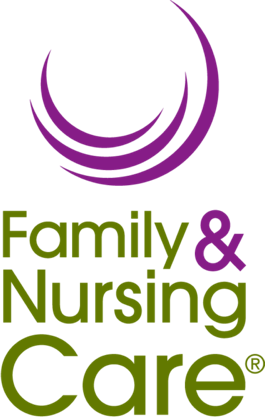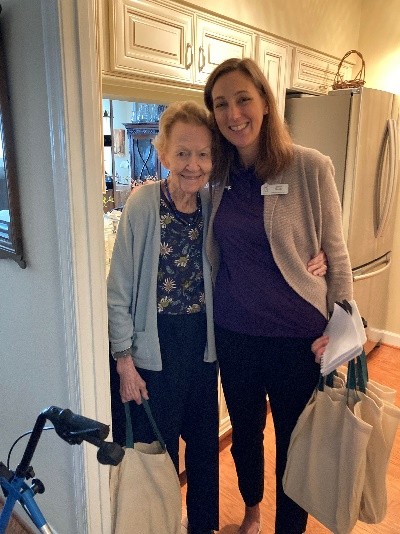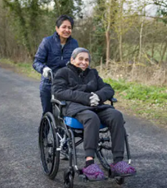 Each year brings new shifts in the home care landscape, and 2026 is shaping up to be another pivotal year. Many of the developments that gained traction in 2025 are now accelerating, including the growing role of technology, ongoing workforce pressures, and greater coordination between home care and health care. Families are looking for more guidance, seniors are living longer with more complex needs, and organizations that support older adults are seeking providers who can keep pace while still delivering reliable, personal support.
Each year brings new shifts in the home care landscape, and 2026 is shaping up to be another pivotal year. Many of the developments that gained traction in 2025 are now accelerating, including the growing role of technology, ongoing workforce pressures, and greater coordination between home care and health care. Families are looking for more guidance, seniors are living longer with more complex needs, and organizations that support older adults are seeking providers who can keep pace while still delivering reliable, personal support.
“Last year, we saw a renewed recognition that home care is essential — not an add-on,” says Neal Kursban, Family & Nursing Care CEO. “In 2026, that understanding is deepening. Families want clarity, consistency, and a high level of service in an increasingly complicated environment.”
For this article, we sat down with Family & Nursing Care CEO Neal Kursban, President Jeff Zukerman, and Vice President of Business Development Mitch Markowitz to discuss the top trends to watch for this year.
1. Technology and AI Continue to Advance
Technology and AI remain major topics across all industries, and home care is no exception. In 2026, the biggest impact isn’t flashy robotics — it’s behind-the-scenes improvements that streamline operations, reduce administrative burden, and create a more seamless experience for families and caregivers. “Where AI can help right now is on the operational side: recruiting, scheduling, data entry, and improving efficiencies,” says Zukerman. “We’re pushing our technology partners to continue building AI into the tools we already use.” Kursban reinforces the importance of taking a balanced approach and keeping service personal: “Families still want to talk to real people. If technology can help the team internally work more efficiently, then that’s great, but the personalized service won’t change.”
2. A Deepening Eldercare Crisis Driven by Worker Shortages
The home care industry is facing a troubling reality: the demand for eldercare is rising at the very same time the workforce needed to provide it is shrinking. This widening gap is putting older adults, families, and the entire care system at risk. With the number of people in the U.S. 85 and older expected to more than double by 2040, the need for qualified caregivers is outpacing supply. Immigration restrictions are worsening the shortage, especially since one in three home care workers is an immigrant. “Home care has never been more essential, but the workforce isn’t growing fast enough to meet the needs of an aging population,” says Kursban. Economic pressures, including rising costs, are also leaving families with fewer choices, often pushing older adults toward settings that don’t reflect their preferences. Strengthening the caregiver workforce through practical immigration policies and greater recognition of home care’s role in the care continuum will be critical to meeting the needs of a rapidly aging nation.
3. Workforce Innovation and Fair Pay Practices Remain Central
The home care workforce continues to face unprecedented demands, making pay, support, and professional stability critically important. While the federal “No Tax on Overtime” rule may help caregivers keep more of their earnings, it’s still incumbent on agencies that employ caregivers to do their part — and that’s something Family & Nursing Care Select takes to heart. The company continues to absorb overtime costs so families are never pressured to limit support to 40 hours per week and caregivers can earn more without client impact. “We’ve always believed that taking care of caregivers is essential because they’re the ones taking care of clients,” says Kursban. “Fair compensation and the ability to work the hours they want are key to providing continuity for families.” As agencies nationwide grapple with recruitment, turnover, and burnout, workforce practices remain a defining measure of quality and stability.
4. Strengthening the Connection Between Home Care and Health Care, Especially During the First 48 Hours Post-Discharge
Hospitals and skilled nursing facilities continue to face pressure to prevent avoidable readmissions. Home care plays a critical role, particularly in the early days after someone returns home. According to Markowitz, “Readmissions used to be tracked by illness, but hospitals eventually realized people weren’t bouncing back based on their condition. They weren’t bouncing back because they were weak when they got home, they fell, they weren’t eating well, they weren’t hydrated, and they weren’t taking their medications. These are all things professional caregivers can help with.” While home care is not a medical service, it fills essential gaps that are often not covered by Medicare — especially in the critical window between hospital discharge and when other services may begin, if a person is eligible. This support directly influences outcomes in the first 24-48 hours and especially the first 30 days at home, which is crucial for preventing avoidable readmissions.
5. Private Equity’s Expansion and Why Independence Still Matters in Home Care
One of the biggest industry-wide shifts going into 2026 is the continued acquisition of home care agencies by private equity firms. While consolidation can bring scale, it often comes at the expense of culture, continuity, and personal service. Private equity firms typically aim to rapidly grow companies, creating pressure that can filter down to families and workers. “It all comes back to personalized touch,” says Kursban. “You can’t remove the human element from home care.” Independence allows home care agencies to maintain their culture, uphold long-standing values, and prioritize what matters most to clients and caregivers.
Looking Ahead
These five trends reflect a broader truth: home care in 2026 is becoming more integrated, data-informed, and complex — yet the heart of the work remains deeply personal.
“People want hands-on guidance from a trusted partner,” says Zukerman. “Whether it’s after a hospitalization, navigating multiple chronic conditions, or supporting an aging loved one who wants to remain at home, the need for experienced home care is only growing.”
Family & Nursing Care remains committed to staying ahead of industry shifts while preserving the compassion, consistency, and personalized support that have defined its work for nearly six decades. Here’s more of what sets us apart:
- For 58 years and counting, we’ve assisted tens of thousands of families by connecting them with compassionate, reliable caregivers to help meet their needs.
- 97% of clients surveyed said they would recommend us to friends and family.
- Only the top 8% of caregivers who apply meet our unwavering standards of excellence, ensuring every caregiver we work with is the best-of-the-best.
- We build strong relationships with professionals across the care community to help coordinate the often overwhelming process of setting up care for clients and families.
To learn more about Family & Nursing Care’s leading home care services, visit the Why Us? page on our website.
 As the large wave of the baby-boomer generation continues to age, the demand for senior housing — whether independent living, assisted living, or memory care — is surging. But the rate of new development is not keeping pace. According to the National Investment Center for Seniors Housing & Care (NIC), annual inventory growth in senior housing recently dropped below 1%. Meanwhile, more than 4 million boomers will hit age 80 in the next five years, a demographic shift that historically correlates with increased need for residential senior care.
As the large wave of the baby-boomer generation continues to age, the demand for senior housing — whether independent living, assisted living, or memory care — is surging. But the rate of new development is not keeping pace. According to the National Investment Center for Seniors Housing & Care (NIC), annual inventory growth in senior housing recently dropped below 1%. Meanwhile, more than 4 million boomers will hit age 80 in the next five years, a demographic shift that historically correlates with increased need for residential senior care.

 As healthcare systems continue to emphasize shorter hospital stays and more seamless post-acute care, one critical moment that can help determine the success of a patient’s recovery journey is the transition from hospital to home. Whether a patient is returning home after surgery, illness, or rehabilitation, effective discharge planning and coordinated home care can make all the difference in reducing readmissions and promoting lasting recovery.
As healthcare systems continue to emphasize shorter hospital stays and more seamless post-acute care, one critical moment that can help determine the success of a patient’s recovery journey is the transition from hospital to home. Whether a patient is returning home after surgery, illness, or rehabilitation, effective discharge planning and coordinated home care can make all the difference in reducing readmissions and promoting lasting recovery. Each year brings new shifts in the home care landscape, and 2026 is shaping up to be another pivotal year. Many of the developments that gained traction in 2025 are now accelerating, including the growing role of technology, ongoing workforce pressures, and greater coordination between home care and health care. Families are looking for more guidance, seniors are living longer with more complex needs, and organizations that support older adults are seeking providers who can keep pace while still delivering reliable, personal support.
Each year brings new shifts in the home care landscape, and 2026 is shaping up to be another pivotal year. Many of the developments that gained traction in 2025 are now accelerating, including the growing role of technology, ongoing workforce pressures, and greater coordination between home care and health care. Families are looking for more guidance, seniors are living longer with more complex needs, and organizations that support older adults are seeking providers who can keep pace while still delivering reliable, personal support. science, early detection tools, and new insight into how lifestyle and prevention may slow cognitive decline.
science, early detection tools, and new insight into how lifestyle and prevention may slow cognitive decline.
 Winter brings cozy moments and quiet beauty, but for older adults, it can also introduce unique challenges to safety, comfort, and well-being. Cold temperatures, shorter days, and icy conditions can make it harder to stay active and connected, which can affect both physical health and emotional resilience.
Winter brings cozy moments and quiet beauty, but for older adults, it can also introduce unique challenges to safety, comfort, and well-being. Cold temperatures, shorter days, and icy conditions can make it harder to stay active and connected, which can affect both physical health and emotional resilience.



